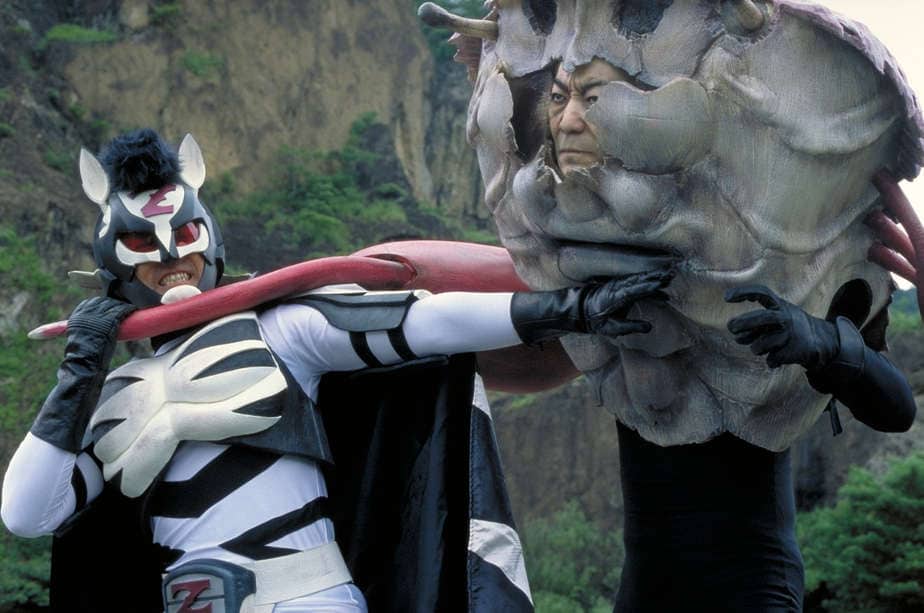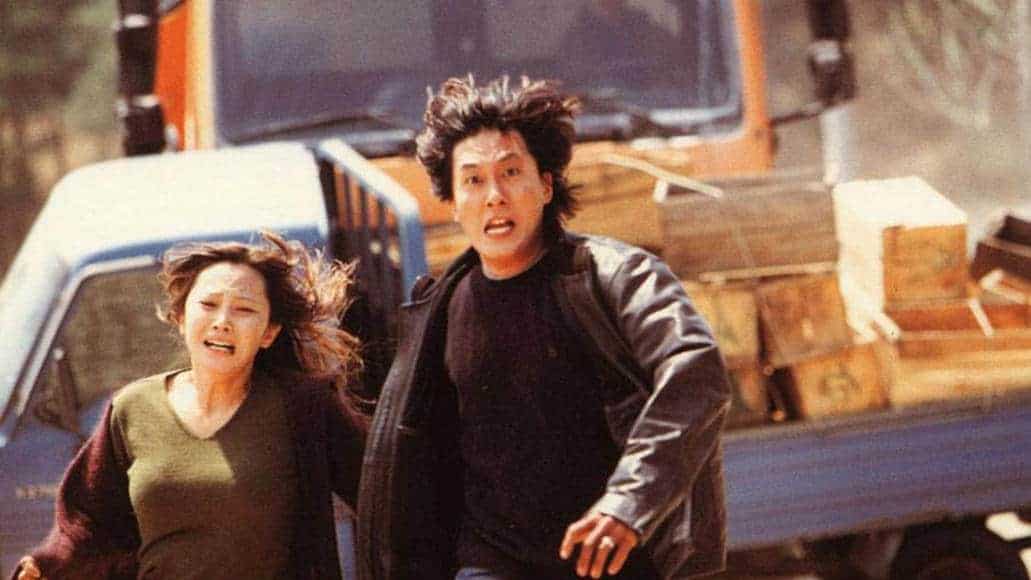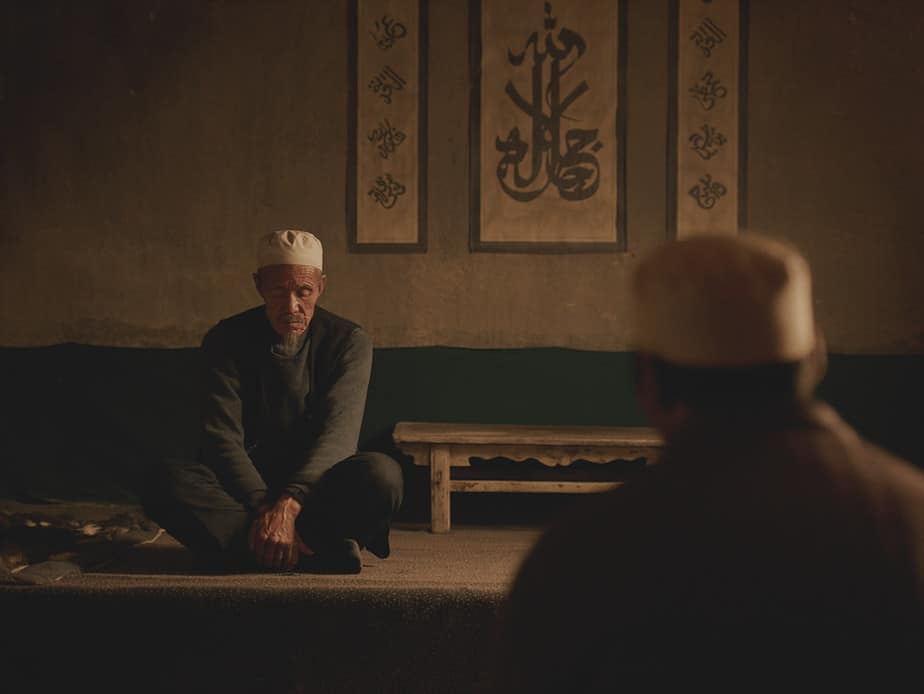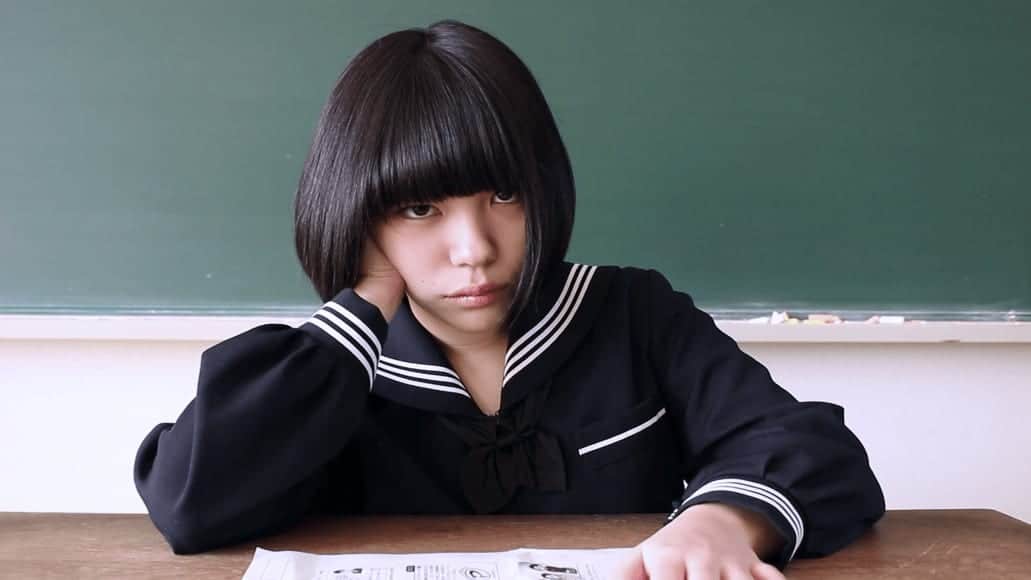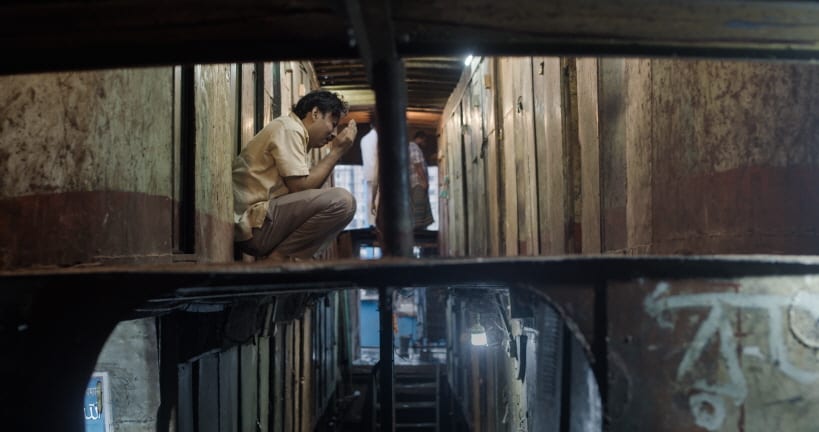The collage of different ideas that is usually the trademark of Miike's cinema finds one of its apogees in “Zebraman 2”, a film that manages to portray a pointy sociopolitical satire about 2010 Tokyo and Japan in general, while incorporating a number of absurd ideas and a more than delirious narrative.
Buy This Title
The story takes place in 2025, when Tokyo has been taken over by an eccentric Mayor named Kozo Aihara, who looks like he jumped straight from “A Clockwork Orange”, has changed the name of the city to Zebra City, and fully capitalizing on Zebraman's heroics 15 years ago, has introduced Zebra time. This last concept is probably the most significant change, since, every day from 5:00 AM and for five minutes, all crime is legal. Among bosses raping their secretaries and a number of other crimes, the Zebra Police (who look like the members of a boy band dedicated to zebras) is allowed to shoot and kill anyone who is walking in the streets. In one of those cases, the recipient of about 100 bullets is Shinichi Ichikawa ala Zebraman, who manages to survive however, and even make some friends, in the face of “doctor” Asano, who happened to be a former student of his, and Junpei Ichiba, who is the one who saves him. Ichikawa, however, has no recollection of his past and at the same time, the political situation escalates, when the Zebra Queen, a rather sultry pop-idol who happens to be the Mayor's daughter, takes over the whole regime, bringing even more chaos on the streets. A rather shuttering revelation about both Zebras changes the whole scenario, while the aliens are soon revealed to be a rather significant threat, still.
If you think that this synopsis is large, let me inform you that this is about 50% of what is happening in the film, since Kankuro Kudo really let his imagination loose in this particular script, and Miike had no issue in bringing all this insanity on the big screen. Centrifuges that split people's personalities, crazy scientists, a number of allies that occasionally change sides, and even alien-eating (or is it eating-alien?) are just some of the rest of the elements included in this truly absurd story.

As it is frequently the case though, Miike manages to present his sociopolitical comments in this chaos in extreme, but rather pointy fashion. The power of the talent agencies and pop culture in general, as a method of crowd control in essence, is the most obvious, with the amalgam of Britney Spears/ Lady Gaga Zebra Queen is highlighting the comment in the most eloquent fashion. Overexposure, easy sounds and above all, “sexiness” in a number of forms are the tools of the entertainment industry, and Riisa Naka as Zebra Queen embodies them to the fullest, in a great performance that also incorporates extreme malice and megalomania.
The way politicians (the system if you prefer) use the aforementioned elements and the connection between them and the entertainment industry also gets its share, while Miike also criticizes the concept of the cult, and the consequences of extreme following, although the script seems to be against Happy Science rather than Aum Shinrikyo.
As usually, however, the comments are quite frequently lost in the chaos of the narrative, with Miike's visual approach not helping in that regard at all. In that fashion, the movie unfolds like a music video quite frequently (and in fact, contains full MV sequences) through the combination of Kazushige Tanaka's extremely polished but also saturated cinematography, Kenji Yamashita's frantic editing and Yoshihiro Ike's always fitting music, which occasionally functions as a parody to pop music.
The production values, along with the extremeness of Kudo's ideas and the direction of Miike find their apogee in the last part of the movie, when action takes completely over, either between the various characters in martial arts/anime style, or against the gigantic alien, where the absurdity really takes over.
The acting in the movie is completely resonant with its overall aesthetics, with the actors acting like caricatures, through occasionally false (but intended) theatricality. Guadalcanal Taka as Kozo, Masahiro Inoue as Asano and Tsusoshi Abe as Nimi, one of the bad guys, embody this tactic fully, while Sho Aikawa as Zebraman is his usual, ridiculously cool self, stealing the show every time he appears on screen.
I cannot say if anyone will actually like this film, but one thing I can easily say is that “Zebraman 2” is definitely a Miike movie, since all his pros and cons seem to be here, in various degrees. Definitely deserves a watch though, particularly because it looks like a manga/anime adaptation but actually is not.


